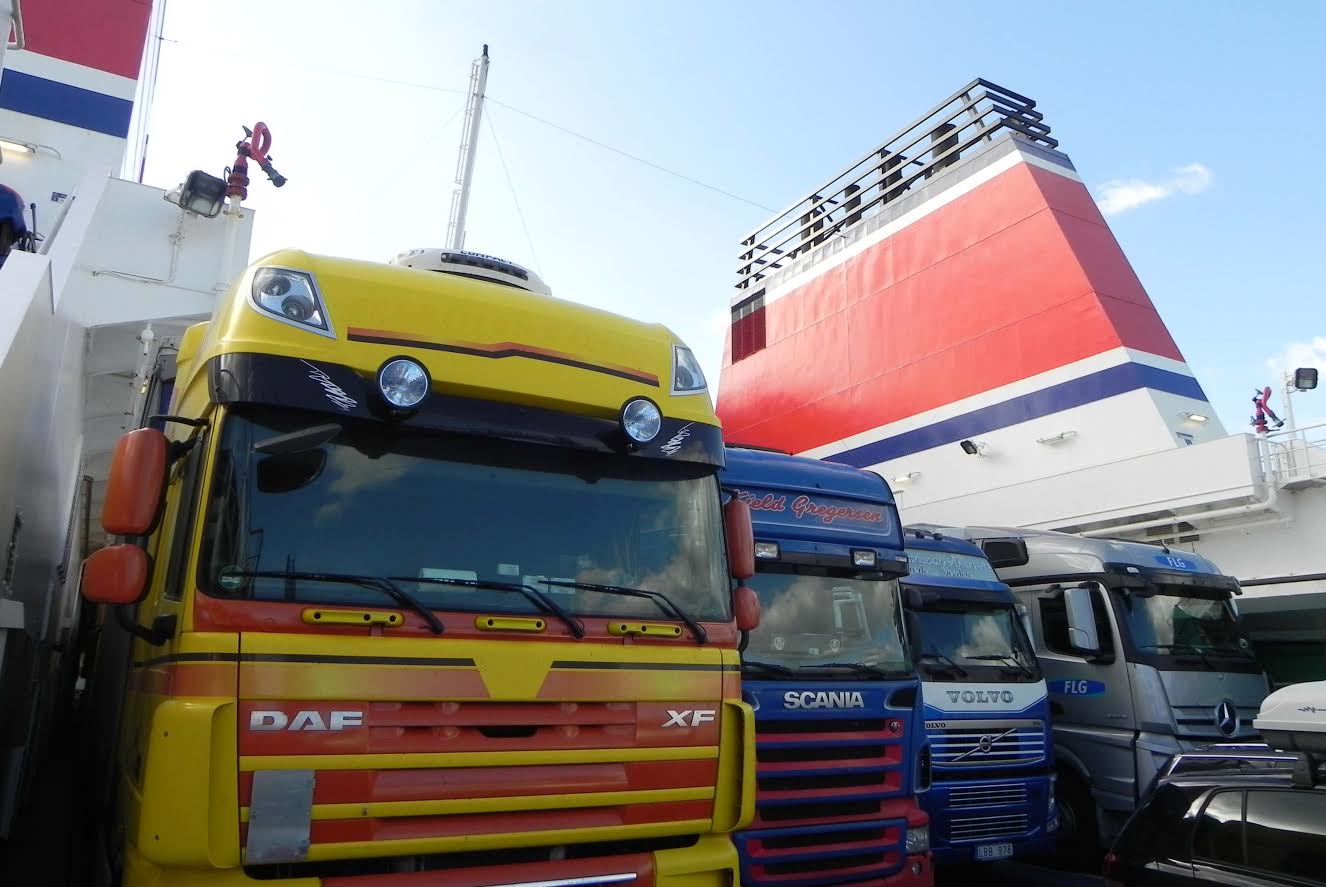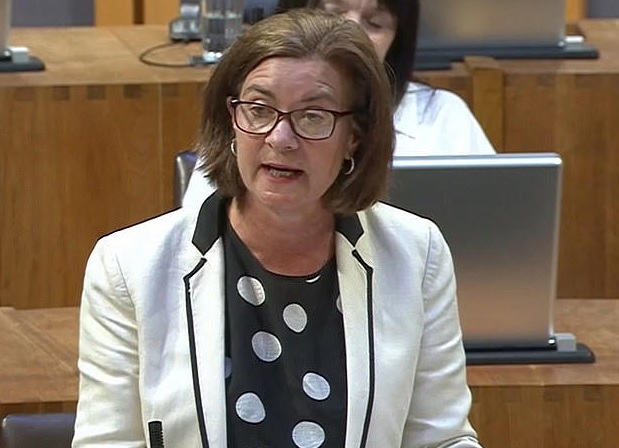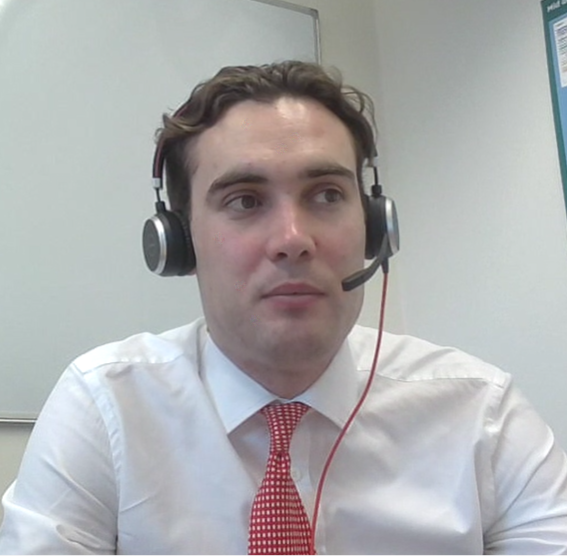News
UK no deal plans to hit ports

TRADE negotiations between the UK and EU continued in London last week.
The talks, aimed at reaching agreement on the future relationship between the two after December 31, appear no further forward. The EU has, however, significantly upped the ante between Westminster and Brussels.
The EU announced it will impose full border customs checks from January next year. The chief trading port between the UK and Europe (to Dominic Raab’s horrified surprise in his former post as Brexit Secretary) is Dover.
If the EU insists on customs checks on goods entering from the UK, there will be delays in Calais. Delays in Calais will inevitably lead to delays at Dover. Because of the physical constraints of the Port at Dover and the relatively poor road transport infrastructure leading to it, delays at Dover could lead to severe traffic problems on the town’s approach roads and also on the wider road network in England’s south east.
The Government, to howls of anguish from Conservative MPs in the south of England, is already preparing significant traffic control measures and advancing plans for a massive lorry park in Ashford, Kent, which voted 60-40 to leave the EU and knew what it was getting.
AS IN DOVER…
The chief ferry ports in Wales are in Holyhead, Fishguard, and Pembroke Dock: all of them will be affected by the new customs procedure, which runs a coach and horses through the Prime Minister’s guarantee of no border in the Irish Sea.
Stena has already expressed concern about the limited space available to it to hold lorries at Fishguard and Holyhead. Former border check areas in Holyhead were built over and physical constraints at Fishguard militate against further expansion there.
The situation at Pembroke Dock is slightly different, in that there remains room to expand the holding facilities due to the Royal Dockyard’s physical footprint.
Any delays, however, would have a continuing knock-on effect on the speed at which freight could be carried from the Port without a seamless customs procedure.
PM SAID NO CHECKS
Last December, PM Boris Johnson disavowed the content of a Treasury document which said border checks on goods transported from the island of Ireland would be necessary.
He claimed that under the deal he negotiated no checks were necessary and the expert report was ‘wrong’.
The Government has long since reneged on promises regarding trade between Northern Ireland and the UK mainland and now the EU is ensuring Mr Johnson’s government sticks to the agreement it negotiated, presumably in good faith, or leaves without a deal.
“Government-commissioned research for the Port of Dover carried out by University College London concluded a 70-second questioning and inspection of lorries entering Britain would lead to six-day-long queues,” said WTO Director Keith Rockwell.
“UK Government analysis says average trade costs will rise by 13% (10% on non-tariff barriers) and they predict a 37% decline in trade volume.”
Mr Rockwell also pointed out that the WTO would have a say over any attempt to strike an interim deal with the EU ahead of thrashing out final details on tariff agreements and market access.
A CHANGE OF TUNE
Until last weekend, the Westminster Government insisted that claims there would be customs checks were so much hot air. However, over the weekend, Cabinet Office Minister Michael Gove appeared on television, on radio, and in print, to set out how the Government proposes to tackle an entirely foreseeable problem of its own making.
Having engaged in fanciful suggestions that the UK would use non-existent technological solutions to cross-border trade, the meat finally met the metal as the Government faced up to the outcome of its failure to abide by the terms of an agreement it signed only last October.
Mr Gove promised £700m to address the issue. It was not clear whether the whole of the £700m was new money or whether the jobs the investment is supposed to create were already accounted for in Westminster’s so-far-failed attempt to recruit Border Patrol staff. Some of the money for ports’ infrastructure had already either been spent or announced previously.
Whatever the answer, the problems are clear.
Goods will pass more slowly through ports with knock-on effects for the UK’s supply chain and manufacturers. Haulage companies face significant problems in complying with the limits on drivers’ working time if delays prove intractable. Increased haulage costs and bureaucracy will, inevitably, lead to price rises for products’ end users and ordinary consumers.
HALF-BAKED DEAL NOT DONE
While the Prime Minister spent much of November and December’s General Election campaign trumpeting his ‘over-ready’ deal, since the election his government has tried to distance itself as much as possible from what it agreed upon with the EU in October 2019. Mr Johnson’s deal now appears not so much ‘oven-ready’ as half-baked.
The current suggestion is a so-called pre-lodgement model, where customs declarations are submitted electronically in advance, before a truck is allowed to enter the port and board a ferry.
Companies have to get a reference number from a new and untested IT platform which, with fewer than six months to go to the transition period’s end, is still being developed.
The UK Government’s record in the procurement and delivery of major IT projects is un-encouraging.
In light of the COVID-19 pandemic, the UK Government has given traders a six-month grace period on complying with new red tape for EU imports. However, the EU has said it will impose full controls on exports from the U.K. as soon as it completes its split from the bloc, due on Jan. 1.
INDUSTRY REACTS
Commenting, RHA chief executive Richard Burnett said: “RHA members, and traders in general, need clarity on how they will be expected to run their businesses from January 2021.
“What worries us is that at the moment, the UK hasn’t hired anything like the number of customs agents needed to process the new form-filling.
“The UK is very slow off the starting blocks on hiring thousands of staff to do this vital work. If we don’t tackle this fast it’s a recipe for disruption to the supply chain post-transition which affects us all.
“Even if the new agents are hired trained by 31 December, firms still don’t know what forms will be required, how they should be completed, who should complete which forms, or where they will need to be sent.
“This is vital information that firms need to have as soon as possible, and should already have received if they’re to have enough time to prepare for the new trading arrangements with the EU.
“The RHA is again repeating its demands for clarity from the Government, who simply must provide this vital information if the UK supply chain is to continue to operate smoothly from January 1, 2021.”
Richard Ballantyne, Chief Executive of the British Ports Association, welcomed Mr Gove’s announcement of further invest, but added: “Borders infrastructure of course means there will be some impact on freight and potentially flows of traffic. We therefore pressing for the pragmatic enforcement of such processes so that trucks and cargo are not held up at our ports. Of course there is still a huge amount to prepare for and operators across the freight and logistics sectors will need to understand what will be required and what this will mean for their businesses.
“Port operators are keen to see the detail of our future borders arrangements. The Government is setting out its new Border Operating Model and a new publicity campaign for the freight sector and we look forward to discussing these with officials.
“About half of our trade is with the EU and so this is why we need to get the arrangements right.”
News
Political leaders and unions react to Milford Haven school assault

First Minister, MP, MS and teaching unions call for safety and support for staff
POLITICAL leaders and teaching unions across Wales have spoken out following Thursday’s assault on a teacher at Milford Haven School, which led to a lockdown, a major police response and the arrest of a 15-year-old boy on suspicion of attempted murder.
The First Minister Eluned Morgan said she was “deeply concerned” by the incident and stressed that violence had no place in Welsh schools.

Her comments come just days after she visited the Milford Haven campus following the school being placed into special measures by Estyn, where she met leaders to discuss improvement plans and support arrangements.
She said her thoughts were with the injured teacher, their family and the wider school community, and praised the swift response of staff and emergency services.

Local MP Henry Tufnell, who represents Carmarthen West and South Pembrokeshire, described the incident as deeply upsetting for what he called a close-knit community.
He said he was thinking of the teacher and pupils affected and thanked Dyfed-Powys Police and ambulance crews for their professionalism.
Meanwhile Senedd Member Samuel Kurtz said: “Deeply concerning news across the water in Milford Haven.
“Sadly, violence in our schools is becoming all too common, and thanks must go to the emergency services for their timely response. Thoughts are with the injured teacher, their family and the wider school community.”
Leader of the Welsh Conservatives Andrew RT Davies said teachers must feel safe at work and called for continued support for school staff.
Teaching unions also responded.
NASUWT said teachers “deserve to feel safe in their workplace” and that any violence against staff must be taken seriously, while National Education Union said schools must remain safe spaces for both pupils and staff and urged continued focus on safeguarding and behaviour support.
All said support would be offered to the Milford Haven school community in the days ahead as police investigations continue.
Crime
Teacher discharged as police step back from Milford Haven school after assault

Teenager remains in custody as school closes and patrols increased to reassure community
POLICE have confirmed they are no longer stationed at Milford Haven School after a teacher was assaulted by a pupil on Thursday afternoon (Feb 5), as the injured member of staff has now been discharged from hospital.
In a joint statement issued by Dyfed-Powys Police, Pembrokeshire County Council and Hywel Dda University Health Board, Superintendent Chris Neve said swift action had been taken to protect pupils and staff.
He said: “Police are no longer in attendance at Milford Haven Comprehensive School, following a report of the assault of a teacher at approx. 3.20pm this afternoon.
“I would like to reassure parents, and the wider community, that swift action was taken to both safeguard pupils and teachers, and to trace the suspect as soon as this report was received.
“The teacher has now been discharged from hospital and is being supported by specialist officers. All pupils at the location were safe, and all returned home unharmed. A 15-year-old boy has been arrested and remains in police custody as enquiries continue.
“You will see a higher than usual police presence in the area over the coming days – these will be dedicated patrols to provide further reassurance.”
The injured teacher was earlier taken to hospital by road ambulance.
An immediate lockdown was put in place at the school while emergency services responded. Most pupils had already left for the day, but those still on site were secured inside classrooms and offices as a precaution.
School closed on Friday
Council leader Cllr Jon Harvey said the school would be closed to pupils on Friday to allow support and safety measures to continue.
He said: “We would like to thank staff and pupils at Milford Haven School for implementing a swift and effective lockdown in response to this incident.
“While the school will be closed to pupils tomorrow, if there are any learners who require additional support they are welcome to attend and there will also be support for staff on site.
“We’d like to reassure learners and parents, along with the wider community, that all measures to ensure safety are being taken.”
The health board added that anyone needing urgent mental health support can call NHS 111 and press option 2 for 24-hour assistance.
National spotlight
The incident has drawn national media attention.
BBC News broadcast live from the school gates during its Ten O’Clock News bulletin, while ITV News and several national titles also covered developments.
Journalists from a number of UK outlets, including The Sun, contacted The Herald as events unfolded, with several Welsh and national publishers using photographs first taken by Herald reporters.
Residents said the scale of coverage was unprecedented for the normally quiet port town.
Police enquiries are continuing.
Photo caption:
Police outside Milford Haven School following Thursday’s incident (Pics: Herald).
Health
Health board targets rise in steroid and gym drug use across west Wales

THE LOCAL health board has launched new targeted measures after recording a sharp rise in the use of steroids and other image-enhancing drugs across the region.
Hywel Dda University Health Board says needle exchange figures show significant growth over the past two years in people seeking support related to Image and Performance Enhancing Drugs (IPEDs), including anabolic steroids and so-called Selective Androgen Receptor Modulators (SARMs).
SARMs, while marketed online as safer alternatives to steroids, are illegal to sell in the UK and health professionals warn they carry serious and largely unknown risks.
The health board has now teamed up with Dyfed Drug and Alcohol Service (DDAS) and Choices, a young people’s substance use service, to tackle what officials describe as an “emerging public health challenge”.
Workshops and outreach
Two key initiatives have been introduced.
Educational workshops are being delivered to young people, focusing on the risks of using performance-enhancing substances during physical development and the potential long-term effects on hormones, mental health and fertility.
At the same time, enhanced support is being offered to people already involved in gym and fitness culture, with harm-reduction advice, health monitoring and confidential drop-in services.
Support includes testosterone testing, blood checks, cycle provision kits and discreet one-to-one consultations.
One service user described the programme as “quick, professional and non-judgemental”.
They said: “The drop-in clinic for my blood test was really convenient. I was seen quickly and given a full run-down of the services available. The staff made me feel comfortable the whole time and I got my results back faster than expected.”
Taking support into the community
The team has also worked directly with local gyms, leisure centres and sports venues, speaking to more than 100 people during five outreach sessions.
Twelve DDAS staff members have completed specialist IPED training delivered by Public Health Wales to strengthen expertise within the service.
Rachel Wilson, Resilient Families Manager at Choices, said the aim is to reduce stigma.
She said: “We’re proud to work alongside Hywel Dda to ensure people who use IPEDs are met with understanding, not judgement. These initiatives are helping us reach individuals who may not have previously considered accessing support.”
Craig Jones, Prevention and Population Health Improvement Manager, added: “This work is about meeting people where they are. By listening and responding with compassion and evidence-based care, we’re making a real difference.”
Dr Ardiana Gjini, Executive Director of Public Health, said the approach showed the board’s commitment to early intervention.
She said: “These initiatives reflect a proactive, collaborative response to emerging health challenges and demonstrate our dedication to protecting the health of our communities.”
Anyone seeking confidential advice or support can contact DDAS on 03303 639997 to book an appointment.
-

 Crime2 days ago
Crime2 days agoSex offender jailed after living off grid in Pembrokeshire and refusing to register
-

 Health15 hours ago
Health15 hours agoHealth board targets rise in steroid and gym drug use across west Wales
-

 News3 days ago
News3 days agoPrincess of Wales visits historic Pembrokeshire woollen mill
-

 Crime7 days ago
Crime7 days agoPembroke man accused of child sex offences sent to Swansea Crown Court
-

 Health5 days ago
Health5 days agoDoctor struck off after sexual misconduct findings at Withybush Hospital
-

 Crime17 hours ago
Crime17 hours agoTeacher injured and teenager arrested for attempted murder at Milford Haven School
-

 Community7 days ago
Community7 days ago50s women threaten legal action over pension compensation refusal
-

 Crime3 days ago
Crime3 days agoHakin man’s appeal delayed again as Crown Court seeks guidance on insurance law

























